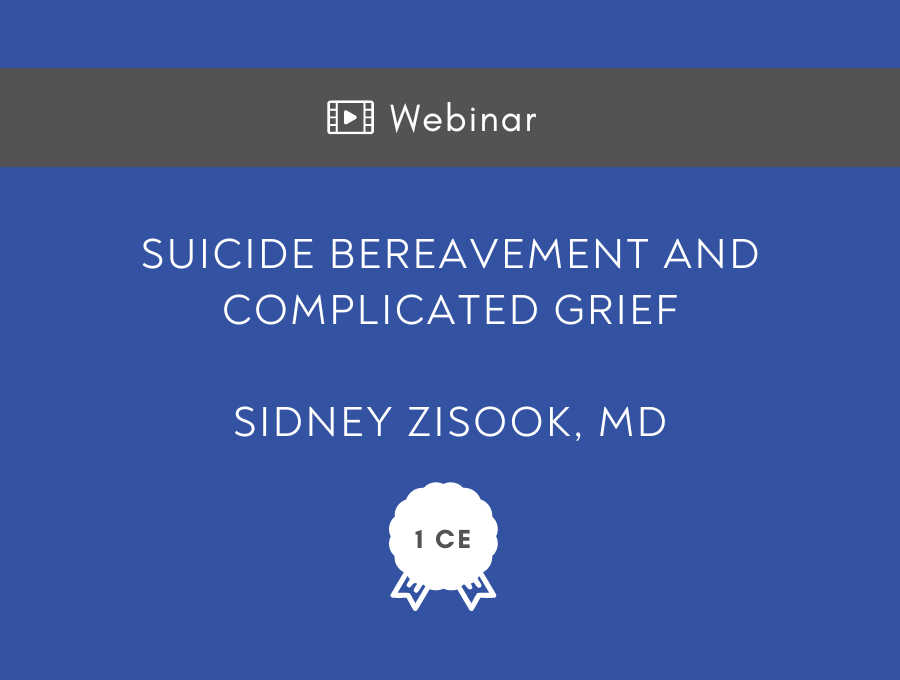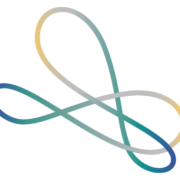
Suicide Bereavement and Complicated Grief – 1 CE Hour
Description
Does complicated grief (CG) and its response to treatment with complicated grief psychotherapy (CGT) after a loved one’s death by suicide differ from CG after other types of deaths? By comparing characteristics, clinical features and response to CGT of participants with CG after a loved-one’s death by suicide (N=58), accident/homicide (N=74) and natural-causes (N=263), the Healing Emotions After Loss (HEAL) study provided preliminary answers to this question. Compared to the other two groups, the suicide bereaved had higher rates of lifetime MDD and pre-loss passive SI and more work and social impairment. Compared to the natural-death bereaved group, the suicide bereaved had higher rates of lifetime and current PTSD and post-loss nonspecific active SI. We found no significant group differences in CG severity, depressive symptom intensity, rates of current MDD and most typical grief-related thoughts, feelings and behaviors, with the exception of some related to how unfair or preventable the death was believed to be. In addition, we found CGT to be a well-tolerated and effective treatment for CG after suicide rates, with improvements noted not only in grief intensity, but also on suicidal ideation, and grief-related impairment, avoidance and maladaptive beliefs. Adding to evidence that CGT is an effective treatment for CG in general, this study provides preliminary evidence that CGT is feasible to administer, well tolerated and effective for those with CG following a loved one’s suicide. Treating CG is important in order to avert future psychiatric and family dysfunction, as well as to decrease risk for future suicides. Effective recognition and treatment of CG among suicide survivors should be a priority for prevention and intervention efforts following suicide loss. Webinar recorded on Novemeber 2, 2018.
Learning Objectives
- Describe how complicated grief after a loved one’s death by suicide differs from complicated grief after other types of deaths.
- Recognize the limitations of antidepressant medication for individuals with complicated grief after a loved one’s death by suicide.
- Appreciate the overall approach and effectiveness of complicated grief therapy for individuals with complicated grief after a loved one’s death by suicide.
About the Presenter
Dr. Sidney Zisook is Director of Healer Education Assessment and Referral (HEAR) Program at the University of California at San Diego (UCSD). Dr. Zisook has a long and abiding interest in training and education and has been an active contributor to the psychiatric literature in the areas of grief and bereavement, mood disorders, suicide prevention and medical education.
Continuing Education
American Psychological Association
The Center for Prolonged Grief at Columbia School of Social Work is approved by the American Psychological Association to sponsor continuing education for psychologists. The Center for Prolonged Grief maintains responsibility for this program and its content.
Note: Many state boards recognize the APA approval. Please check with your state licensing board.
New York State Education Department
- NYSED State Board for Psychology recognizes the Center for Prolonged Grief as an approved provider of continuing education for licensed psychologists (#PSY-0150).
- NYSED Board for Social Work recognizes the Center for Prolonged as an approved provider of continuing education for licensed social workers (#SW‐0727).
-
NYSED State Board for Mental Health Practitioners recognizes the Center for Prolonged Grief as an approved provider of continuing education for licensed marriage and family therapists (#MFT-0080).
Note: Non-NYS social workers, marriage and family therapists, and other professionals, please check with your state licensing board. Many states have recognized our continuing education programs as we are at a CSWE-accredited institution and part of a regionally accredited university.
Course Content
Suicide Bereavement and Complicated Grief
-
Watch the Webinar
58:50 -
Take the Post-Test
-
Post-webinar evaluation
00:00
About the instructors
2 Courses
19 students
22 Courses
0 students
41 Courses
396 students
